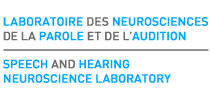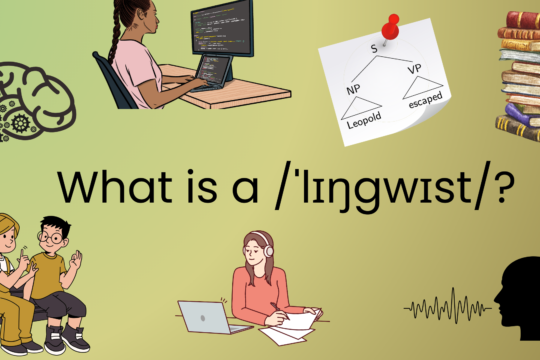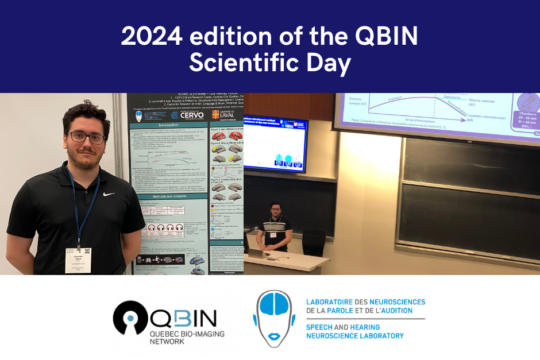Valérie’s thesis article accepted for publication!
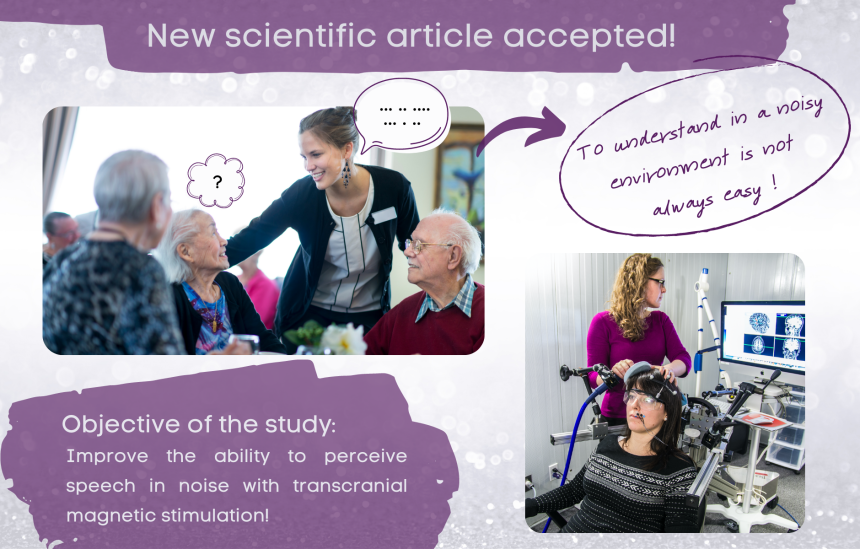
Congratulations to Valérie and Pascale, respectively student and director of the laboratory, for their scientific article that was recently accepted for publication! This article will be the first chapter of Valérie’s doctoral thesis.
The objective of this study was to investigate the potential of transcranial magnetic stimulation (TMS) to modulate the ability to perceive speech in noise in young and older adults.
In a first experiment, the team developed and tested a speech perception in noise (SPiN) test. Next, 22 healthy volunteers aged between 20 and 85 years old took the test. They were asked to indicate whether two syllables (e.g., niz — miz) presented in background noise were identical or not by pressing a button. The background noise, which resembles what you hear in restaurants, varied in intensity during the test. The results of this first experiment indicated that older adults had more difficulty in perceiving speech in noise than young adults, and that this difficulty increased as background noise became louder. These results demonstrate the new SPiN test is sensitive to the well-established age differences in SPiN abilities.
In a second experiment, a second group of 34 healthy volunteers aged between 32 and 79 years old performed the SPiN test after regions of their brains involved in speech processing were stimulated using a method called transcranial magnetic stimulation or TMS. The two regions that were stimulated are shown in Figure 1.
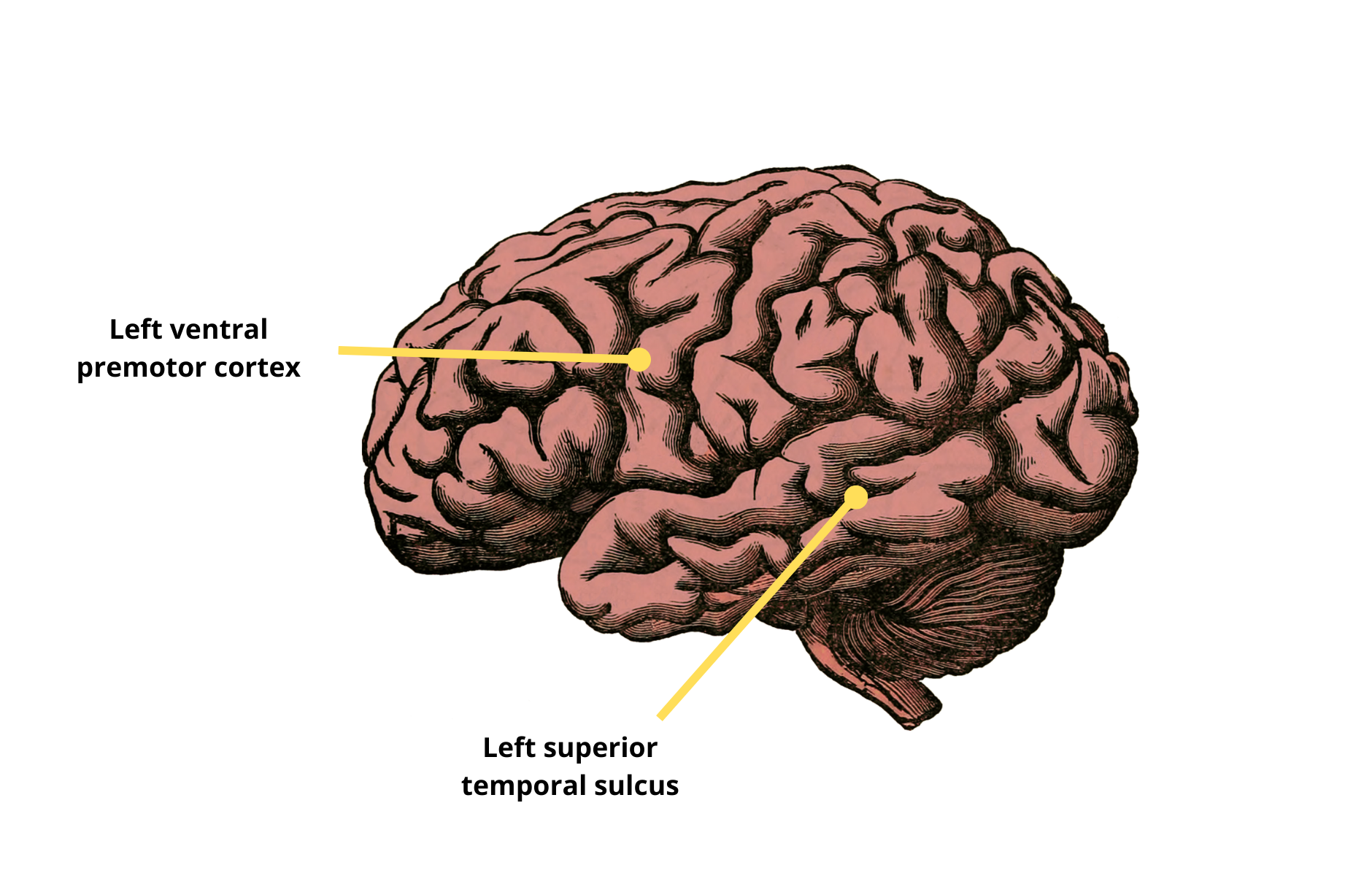
Figure 1. Brain regions stimulated by TMS.
The results indicated that TMS applied to both regions improved SPiN, regardless of age. However, TMS to the left ventral premotor cortex was more effective to improve performance. In addition, the people who benefited the most from TMS were those who initially had a the lowest performance on the test.
These results suggest that difficulty in perceiving speech in noise can be reduced by increasing activity in the brain network associated with speech processing. These results are important for the development of therapeutic interventions to improve speech using TMS! Finally, the results suggest that the left ventral premotor cortex may be a better target to reduce or prevent a decline in speech perception.
As part of her doctoral project, Valérie has already started a new study, also by using TMS, to continue her exploration into brain plasticity! Stay tuned!
